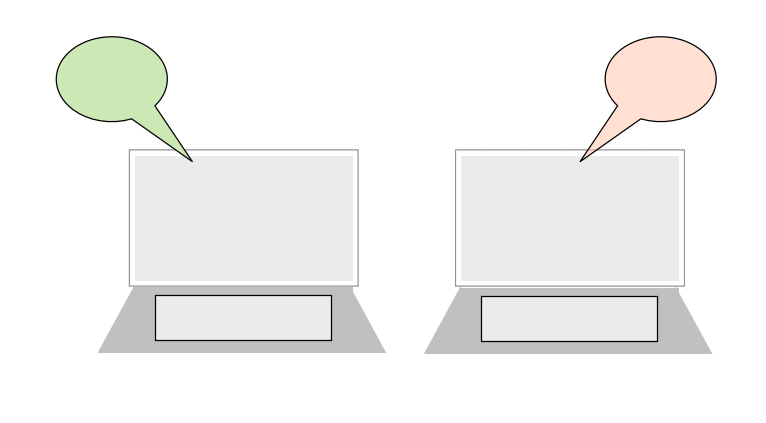Psychoanalysis in the Digital Age
-
October 16, 2018
8:00 pm - 10:00 pm
NYPSI’s 1032nd Scientific Program Meeting:
Psychoanalysis in the Digital Age: A Panel Discussion
Tuesday, October 16, 2018
8:00 pm
Discussants: Gillian Isaacs Russell, PhD; Todd Essig, PhD; David Goldenberg, MD
Moderator: Rebecca Twersky, MD
Digital technology has created powerful methods of communication that were previously unimaginable in any setting, let alone a psychoanalytic treatment. Many clinicians have embraced these technological advances for their convenience and promise of facilitating long distance treatment, or even local treatment conducted outside the office setting. And many patients are comfortable with distance treatment, or express a preference for it, especially younger patients who experience technology as integral to who they are. While there are advantages to using technology for psychoanalytic (or some mode of psychodynamic) treatment, there are also many problems with its use. This panel will address these advantages and problems and consider, among others, the following questions:
- What are the limitations of the use of technology in psychoanalytic treatment?
- How is communication hindered, or facilitated, by digital technology?
- What does it mean to be in the presence of another person?
- Are there differences in the ways patients of different ages and levels of technological expertise can benefit from an online psychoanalysis?
2 CME/CE credits offered.
Gillian Isaacs Russell, PhD, is a UK-trained psychoanalyst who is a member of the British Psychoanalytic Council and American Psychoanalytic Association. She has served on the Editorial Board of the British Journal of Psychotherapy, as Book Reviews Editor, and is now a member of the Reviewing Panel. She recently co-edited (along with Todd Essig) a special issue of Psychoanalytic Perspectives on technology. Her book Screen Relations: The Limits of Computer-Mediated Psychoanalysis and Psychotherapy was published by Karnac Books in 2015. Dr. Russell is internationally known as a lecturer, author, consultant, and researcher. She speaks and teaches on technology and its impact on intimate human relationships, particularly in psychotherapeutic treatment. She currently lives in Boulder, Colorado, where she has a private practice.
Todd Essig, PhD, is a Training and Supervising Psychoanalyst at the William Alanson White Institutes. He’s served on the editorial boards for Contemporary Psychoanalysis and the Journal of the American Psychoanalytic Association and recently co-edited (along with Gillian Isaacs Russell) a special issue of Psychoanalytic Perspectives on technology. For 16 years, until 2009, he was Director and Founder of The Psychoanalytic Connection (psychoanalysis.net), becoming widely known as a pioneer in the innovative uses of information technologies for mental health professionals. He currently writes “Managing Mental Wealth” for Forbes where he writes about building an authentically good life in emerging technoculture. His clinical practice is in New York City where he treats individuals and couples, almost all of whom come to his office.
David Goldenberg, MD, is a psychiatrist and psychoanalyst in private practice in New York. A graduate of the New York Psychoanalytic Institute, he is on faculty here and at NY-Presbyterian, teaching in the psychoanalytic and the psychotherapy programs, both technique and theory courses including Freud’s case histories. Dr. Goldenberg is The Director of NYPSI’s Psychoanalytic Psychotherapy Program. He is board certified in general psychiatry as well as psychosomatic medicine, and has published papers in this sub-specialization, including, Psychological Issues and PrEP in Private Practice (Journal of Gay and Lesbian Mental Health, 2016). He also recently published a review, Dreaming, One Way or Another (JAPA, 2017) of, Psychoanalysis, Identity, and the Internet: Explorations into Cyberspace (Ed. Marzi; Karnac Books, 2016).
Rebecca Twersky, MD, is a psychiatrist and psychoanalyst in private practice in New York City. She graduated from the New York Psychoanalytic Institute in 2012, and is on faculty at NYPSI and at Mount Sinai/Beth Israel. She teaches in the psychoanalytic and psychotherapy programs at NYPSI and supervises residents in psychotherapy. Dr. Twersky is the Director of Curriculum for NYPSI’s Psychoanalytic Psychotherapy Program, Director of NYPSI’s Psychoanalytic Fellowship, and co-Chair of NYPSI’s Communications Committee, where she has used her long-standing interest in technology to redevelop NYPSI’s website and to moderate this program. Dr. Twersky also has a blog where she has written about topics ranging from demystifying the arcana of complex statistical analyses to social commentary.
Educational Objectives: Upon completion of this activity, participants will be able to:
- Recognize ways in which technology can hinder the psychoanalytic process.
- Describe the types of technology used for distance treatment.
- Identify clinical situations in which technology can facilitate treatment.
Psychologists
New York Psychoanalytic Society & Institute is approved by the American Psychological Association (APA) to sponsor continuing education programs for psychologists. New York Psychoanalytic Society & Institute maintains responsibility for this program and its content.
Social Workers
New York Psychoanalytic Society & Institute SW CPE is recognized by the New York State Education Department’s State Board for Social Work as an approved provider of continuing education for licensed social workers #0317.
Physicians
This activity has been planned and implemented in accordance with the accreditation requirements and policies of the Accreditation Council for Continuing Medical Education (ACCME) through the joint providership of the American Psychoanalytic Association and New York Psychoanalytic Society & Institute. The American Psychoanalytic Association is accredited by the ACCME to provide continuing medical education for physicians.
The American Psychoanalytic Association designates this Live Activity for a maximum of (2) AMA PRA Category 1 Credit(s)™. Physicians should claim only the credit commensurate with the extent of their participation in the activity.
IMPORTANT DISCLOSURE INFORMATION FOR ALL LEARNERS: None of the planners and presenters of this CME program have any relevant financial relationships to disclose.
Venue: NYPSI's Marianne & Nicholas Young Auditorium
Description:
Second Floor, 247 East 82nd Street | New York, NY 10028

